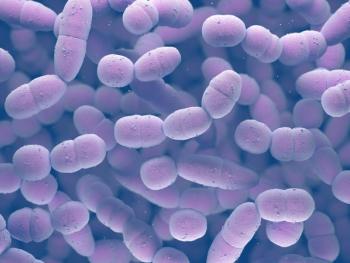
AJPB® Translating Evidence-Based Research Into Value-Based Decisions®
- January/February 2017
- Volume 9
- Issue 1
The Value of Vaccination: Myth vs Evidence in the New Administration
In our quest to identify the areas and activities that show the greatest positive impact and value in care and outcomes, we must aim to not let good science and evidence get away from us, particularly when considering vaccination.
I was born in the 1950s, at a time when polio was rampant in our country. Fortunately, a vaccine was discovered during that time, but nevertheless, I still had a relative who contracted the disease, and he lived his life significantly impacted by its effects. Later, in the 1970s, as I was training to be a pediatrician, I spent a great deal of time treating infants and children who had a number of infectious diseases, including meningitis and epiglottitis. Many survived after being afflicted, but many other children did not. Thankfully, the scientific community once again did what they had done a number of times prior and identified and produced vaccines that could prevent these horrible diseases, subsequently saving many lives. These vaccines changed the practice of medicine and pediatrics not just in the United States, but worldwide.
In the present day, with the naming of new officials in President Trump’s administration, our country may be on a course that could have widespread negative effects on population health. On January 10, Robert Kennedy Jr—a leader in the antivaccine movement in the United States—was named the chair of the Vaccination Safety Committee, which has been tasked with looking at “vaccine safety and scientific integrity.” Although I believe we have a responsibility to understand the impact of vaccines and medications, we should be cautious about using information that has no tie to good scientific evidence.
Over a number of years past, research has repeatedly shown that there is no link between vaccines and any developmental conditions, and studies that claimed there was a link between vaccines and autism have been disavowed. I would suggest that continuous research on questions that have been answered is not a good use of our country’s time, money, or other resources. In addition, we do a disservice to continue to place many infants, children, and some adults at risk by confusing the public about the importance of vaccines in the fight against preventable diseases.
The naming of this new committee comes at a time when we are looking at value in healthcare. We seek to identify those areas and activities that show the greatest positive impact in care and outcomes, and on this topic specifically, few would disagree that vaccines bring great value. It could be said that vaccines are the poster child for high-value care, so we must aim to not let good science and scientific evidence get away from us. In fact, I am looking to the scientific community to continue their good work in identifying vaccines for many other deadly infections.
Articles in this issue
almost 9 years ago
What Are Key Considerations for Health Reform?almost 9 years ago
Patient Characteristics' Effect on the Conversion Between Basal InsulinsNewsletter
Stay informed on drug updates, treatment guidelines, and pharmacy practice trends—subscribe to Pharmacy Times for weekly clinical insights.




























